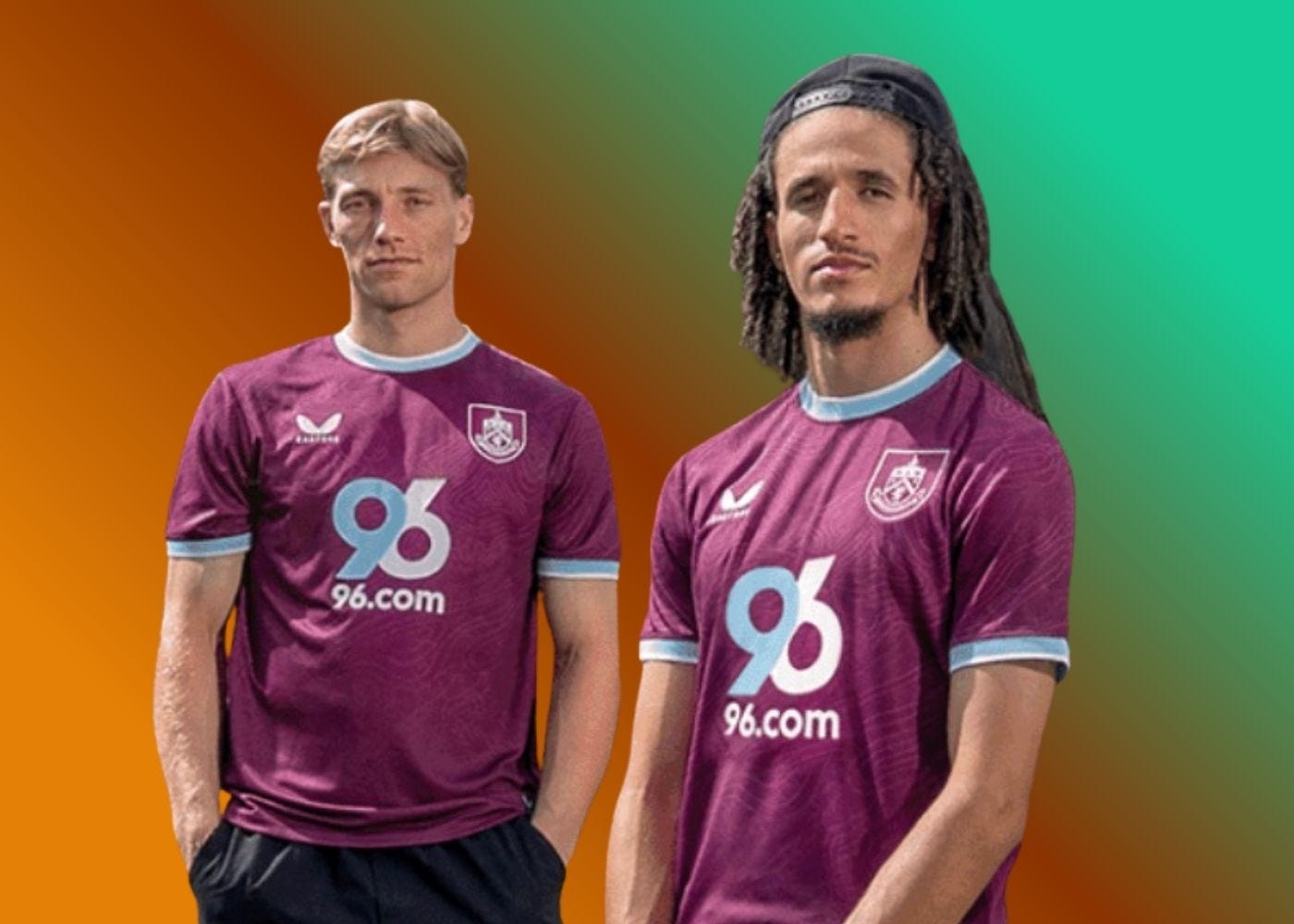The football sponsors you might not want on your shirt (part two)
A look at some more questionable sponsorship deals this season
Football’s uneasy embrace of questionable sponsors continues this week, with another look at clubs striking deals with dubious gambling and crypto firms.
This instalment looks at two more gambling companies with little public information about their ownership and operations — BK8 and 96.com — both tied to Burnley FC.
It also examines two crypto outfits: Socios, criticised for monetising fan engagement, and TokenFi, a spin-off from the Floki Inu memecoin.
Check out part one here.
Subscribe to Scamurai’s weekly newsletter and get the weekly roundup straight to your inbox.
Scamurai has approached all the sponsors and companies in this article for comment and will update the piece to include responses if any are forthcoming.
BK8
Burnley FC first announced BK8 as a partner in August 2022, hailing the little-known Asian brand as a valuable sponsor that would deepen the club’s connection with fans.
“BK8 is a dynamic online gaming and betting platform known for its diverse offerings,” Burnley said at the time.
BK8 has previously sponsored Aston Villa, Crystal Palace, Huddersfield Town, Valencia, Athletic Bilbao, Villarreal, Elche, and RCD Mallorca, and is the title sponsor of Gresini Racing MotoGP.
But, like the firms on Scamurai’s previous list of dodgy sponsors, BK8’s origins remain murky. Multiple data points suggest a link to Cambodia. A 2024 United Nations Office on Drugs and Crime (UNODC) report — where the company appeared as a case study under a pseudonym — described BK8 as “an entity with an obscure ownership which managed to secure several multi-million-dollar sponsorship deals with Premier League football clubs.”
The report also noted BK8 operates gambling sites aimed at illegal betting markets in East and South Asia, Australia and elsewhere, and that its terms and conditions showed a holding company in Sihanoukville, Cambodia.
Investigators further found that corporate records tied BK8 to a Southeast Asian national with executive roles in other Cambodian and Malaysian-registered entities. The report did not name the individual.
Recruitment ads again linked one of these companies to a notorious Sihanoukville scam compound implicated in trafficking for forced criminality.
The UNODC also concluded that BK8’s payment infrastructure relied heavily on underground banking and laundering networks, using hundreds of rotating mule accounts to process fiat and crypto transactions across illegal markets.
An April 2025 press release listed a Cambodian phone number as BK8’s contact.
A link on its website to its supposed Curaçao-issued gambling license redirects to a 404 page.
96.com
Also sponsoring Burnley this season is 96.com as part of a two‑year deal beginning in 2024. It replaces TGP‑linked W88 as the club’s front‑of‑shirt sponsor.
Launched in 2019, 96.com markets itself as a “premium sports and gaming entertainment platform” offering casino, virtual and online betting services.
The contract entailed a record commercial fee, which Burnley said would support infrastructure projects and football development during its time in the Championship.
Like BK8, the ownership of 96.com is opaque. The site operates under a licence from Anjouan, a small region in the Comoros Islands, through Dynasty Chain Success.
Several gambling websites list the company’s address at a corporate solutions company in the Seychelles, though it is not clear from where that information originates.
Dynasty Chain Success had no company listing on either Open Corporates nor the Seychelles Business Registry.
The social media presence of 96.com and its affiliated sites is minimal, with accounts attracting little engagement, again belying the assertion it is a major bookmaker in Asia.
Socios
Socios has become a fixture in sports sponsorships by crypto companies over the past few years. Its website says it works with more than 100 teams, including Arsenal, Everton, Manchester City and Tottenham Hotspur.
Socios is a blockchain-based platform founded in 2018 by Mediarex, a Malta-headquartered company that also operates the Chiliz blockchain. In 2024, it received in-principle approval for a license in Malta.
The company markets itself as a way for fans to “get unprecedented access” to their clubs, claiming supporters can “make [their] voice heard” and influence their team by voting in polls. In practice, the impact is minimal — largely limited to cosmetic or low-stakes decisions — and fans must buy tokens to take part.
Critics have noted that such experiences hardly require cryptocurrency to organise. The Football Supporters’ Association (FSA) has branded their business model as turning fan engagement into a pay-to-play scheme.
FSA chief executive Kevin Miles pointed out that both the Premier League and the EFL already require clubs to engage with supporters for free, making Socios’ monetisation of the process unnecessary.
“There should be no financial barriers to engaging with your football club,” he said in 2019.
A 2021 BBC-commissioned study estimated that more than £262 million ($350 million) had been spent on virtual “fan token” currencies.
TokenFi
Queens Park Rangers (QPR) announced a partnership with TokenFi, an asset tokenisation venture, ahead of the 2025/26 EFL Championship season.
The club has promoted the deal as pioneering, but questions remain over the real value of the deal.
TokenFi will serve as QPR's official partner and official training kit sleeve partner, meaning its logo will feature on training gear, at the Loftus Road Stadium and across club media backdrops.
TokenFi is a project launched by Floki Inu, a memecoin inspired by Elon Musk’s dog.
It has a history of clashing with regulators. In 2022, the UK’s Advertising Standards Authority (ASA) banned a London Underground campaign featuring a cartoon dog in a Viking helmet and the slogan: “MISSED DOGE. GET FLOKI.”
The ASA said the ad exploited fear of missing out, trivialised crypto investment and preyed on consumer inexperience.
Similar rulings were made against Floki advertising in other jurisdictions, including Hong Kong, where the Securities and Futures Commission (SFC) branded its staking platform a “suspicious investment product”.
The SFC criticised it for promising annualised returns of 30% to over 100% without adequately explaining how such figures could be achieved. Floki’s defence — that rewards are distributed to stakers rather than venture capitalists and that its decentralised — did little to reassure regulators or actually explain how such returns are generated.
Scamurai has previously showed Floki's explanation of its staking mechanism to multiple tokenomics specialists who said they didn’t understand how the yield was generated.
Floki has responded to such rulings about its advertising by tweaking its offerings while continuing to pursue aggressive sports sponsorships. After its staking product was barred in Hong Kong, it resurfaced in South Korea as sponsor of a table tennis championship in Busan.
It regularly releases press releases bragging about the number of eyeballs its ads will get.
Got a story, comment, question or complaint? Get in touch below or email callan@scamurai.io





